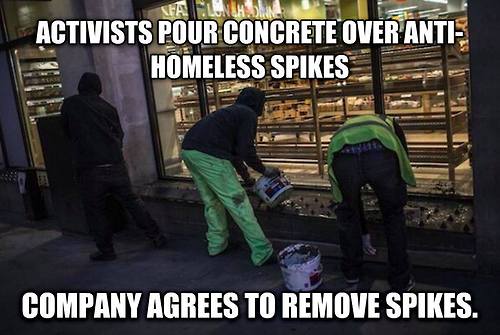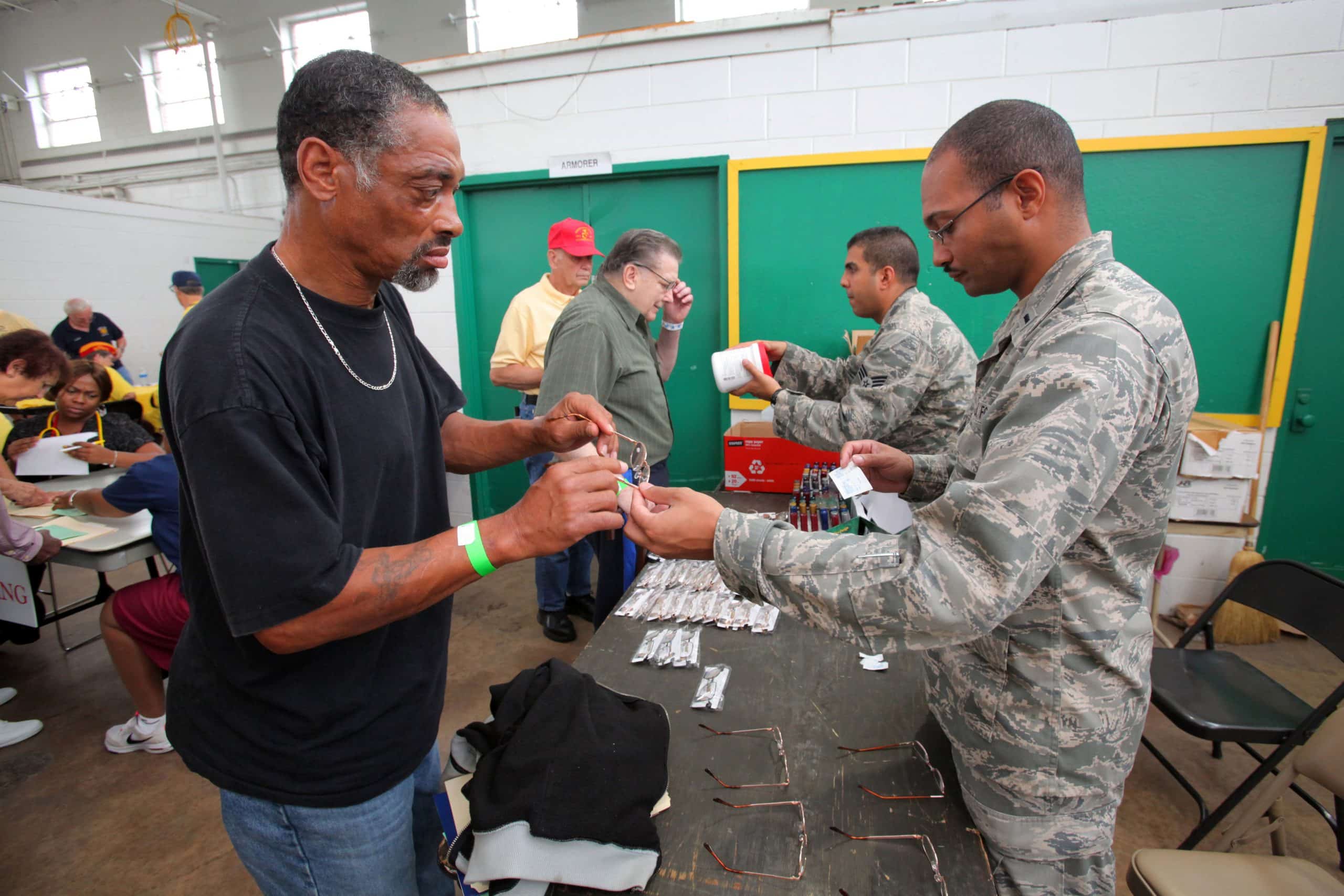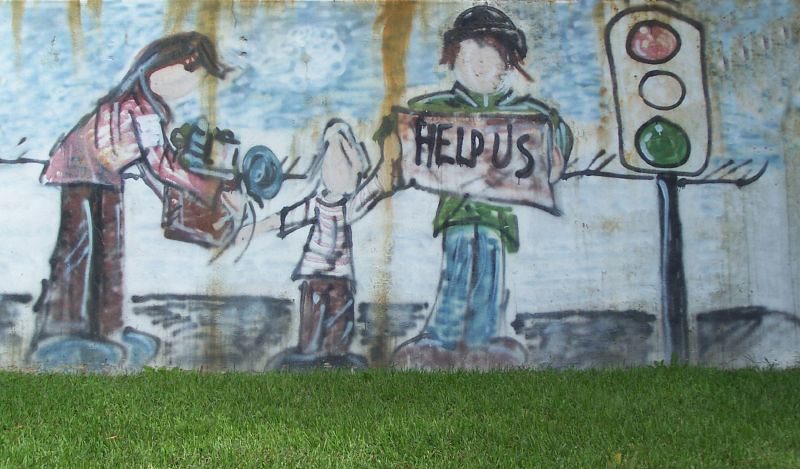So there's bad news and good news, it seems, on the topic of homelessness these past few months.
It seems like we're seeing another wave (did it ever stop exactly?) of attempts to criminalize homelessness and punish people for being homeless. Installation of spikes to deter sleeping (did anyone else feel like they were creepily reminiscent of anti-pigeon spikes?) got a flurry of attention recently, and in at least one case in London the spikes were removed after activists poured concrete on them. (I found the park bench where you had to pay a coin to have the spikes retract to be even grosser than spikes on a ledge myself.)
Cities have been forcing people to move from makeshift encampments (“It will be the fifth time in four years the city has forced him to move, Stewart said. 'If you had to do this one day in someone else's shoes, you would hate it.'”). And new laws against survival behaviors like sleeping in your car (Sorry, Lou and Peter Berryman, apparently sometimes someone does deny your right to live in your car) and panhandling are on the rise, probably in response to the face that homelessness itself is on the rise (subscription link).
The irony—and hopefully the hope—in this situation is that it also comes at a time when there seems to be wider spread acceptance of the idea that housing people is cheaper than not housing them and that homelessness actually can be solved. The New York Times noted as much in an editorial that referenced both a court ruling against a car sleeping ban and No Safe Place: The Criminalization of Homelessness in U.S. Cities, a report on rising criminalization from the National Law Center on Homelessness & Poverty.
Community Solutions recently hit its 100,000 Homes goal a month early, and places like Salt Lake City and Phoenix, working with Community Solutions, have announced that they have successfully housed their chronically homeless veteran population, with the whole state of Utah looking to end homelessness within a couple years. (Look for more in an upcoming issue of Shelterforce on veteran homelessness and how the lessons from working with vets can be applied elsewhere.)
In the meantime, court rulings and public sentiment seem to be against the most punitive measures as well, and there are humane responses like this one, a bench designed to give shelter.
I would like to think that we can choose to put limited public resources and energy into following the more positive of these two paths. What do you think about these two contradicting trends?





Comments